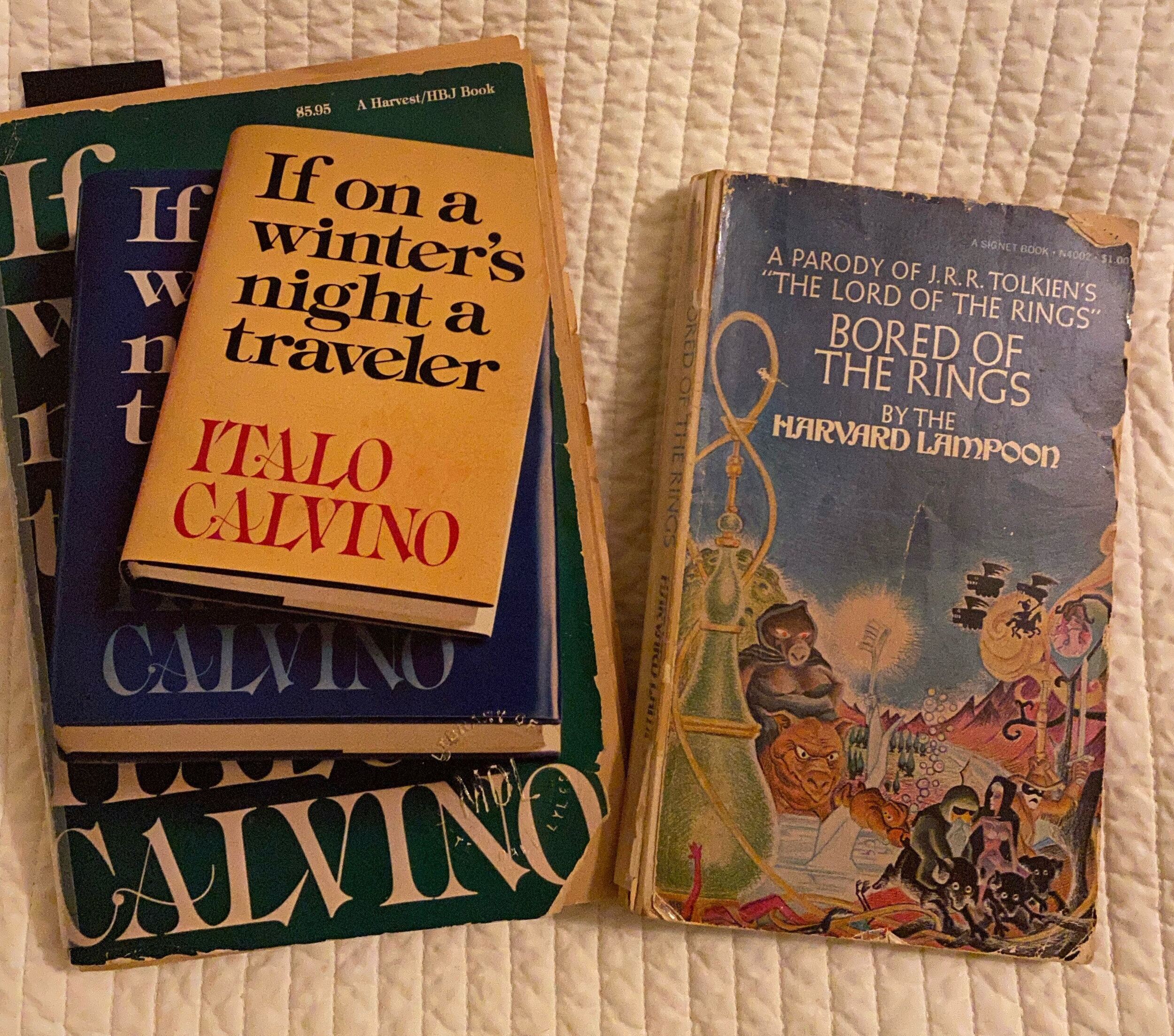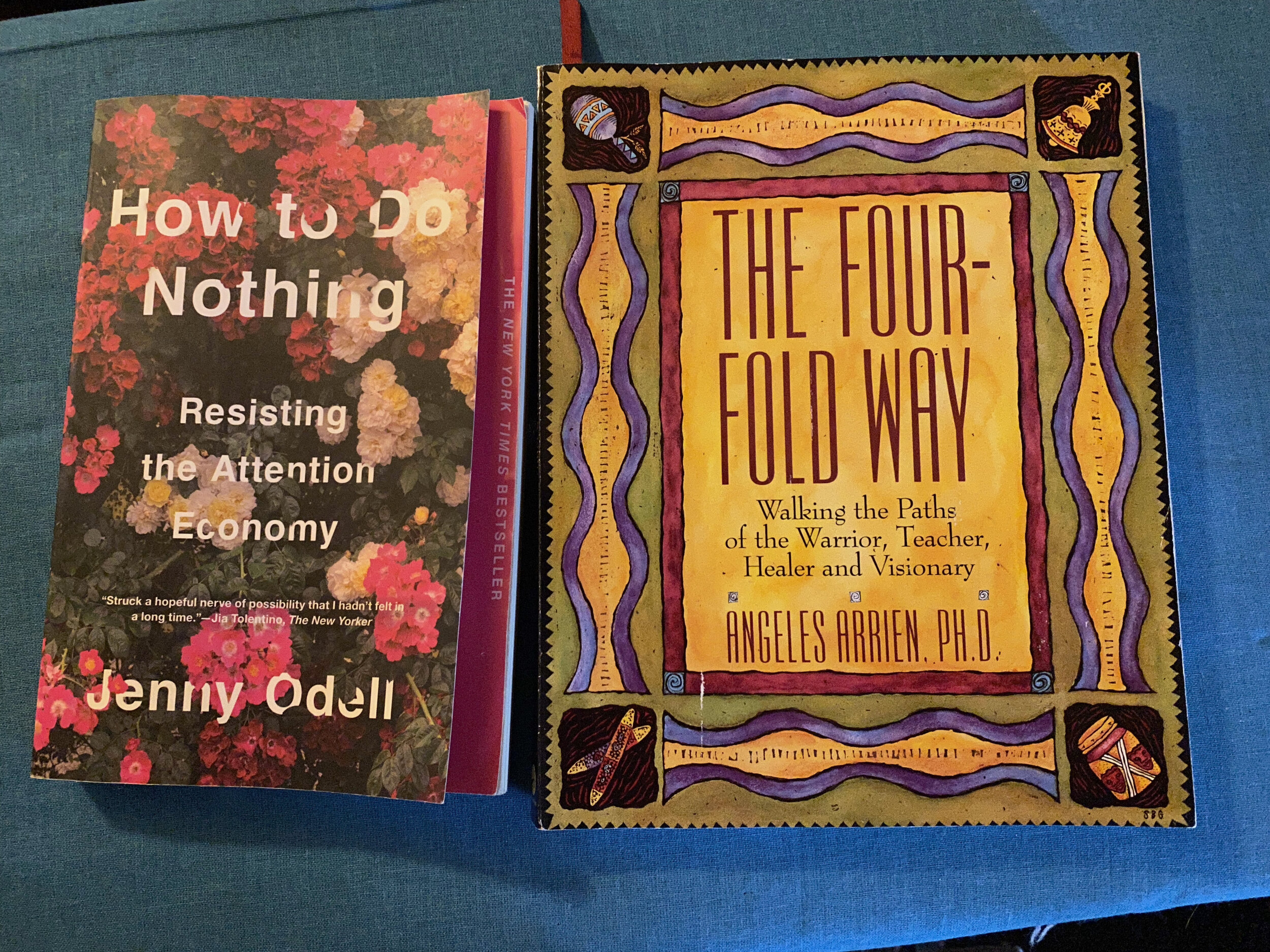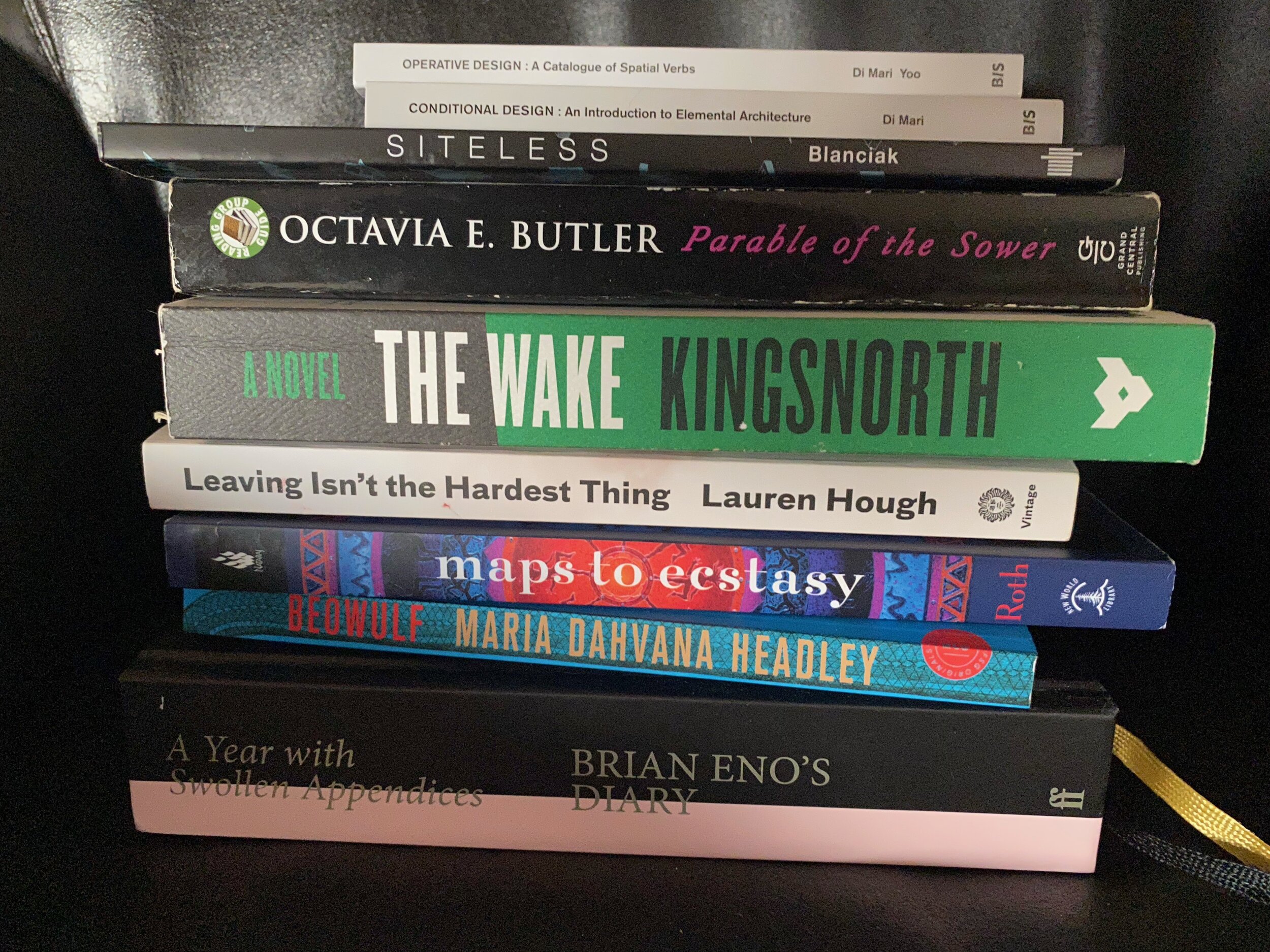Topless towers
/Like many of us, I have a book problem. However, since we don’t kink-shame on this blog, I will now overshare.
For the record, I do not have a stack of unread books by my bedside: I have two stacks of books by my bedside plus a stack in the living room. (I think I’ve disassembled any nascent bookstacks by my chair in the den… let me check… okay, we’re safe on that front.)
(N.B.: I have not included photos of all those books that I will never read because whatever moment there was where I might have read them has long passed, but there are at least as many in that pile as the three here combined.)
I’ll let you draw your own conclusions about my reading habits, but I shall highlight a few things.
First, the books I am reading now.
These track fairly closely to my main types of reading (l–r): literary fiction, light fiction, nonfiction, and hippie woo stuff. If in a winter’s night a traveler is a re-read, as is Bored of the Rings. I’ve been reading How to do nothing as part of an online book club, and The four-fold way was recommended by one of my fellow Lichtenbergians, Mike Funt, as formative for his ideas about his “Sacred Clown” course.
My reading piles have never dwindled to nothing. Let’s face it, no reader’s piles ever dwindle. I’ve been very slack about keeping up, however, during the pandemic. Lassitude and ennui can hold a guy back, you know? Meanwhile the piles grow and proliferate.
So here we are. Here’s the pile in the living room:
Literary fiction, nonfiction, hippie woo: √. I’m not going into every detail, but here are some things I will mention. Most of these books come from recommendations of other creative writers and creative websites. (I am much more likely to start and read with gusto a book I have found on my own.)
I started The wake a couple of years ago; it’s brilliant, but it’s a slog because it’s written in faux-Saxon English — I found that the only way I could readily comprehend it was to read it out loud, and one can do that for only so long at a sitting.
I’m always interested in translations of ancient texts, the main ones being Gilgamesh, the Tao te ching, and Beowulf. This one is by a feminist scholar, reinterpreting the nature and role of Grendel’s mother. (I was taken by her translation of the untranslatable opening cry of Hwæt! as Bro!)
And the top three books are graphic catalogs of architectural building blocks which I bought to study for a proposed “Build It Burn It” workshop down at Backstreet Arts.
On to the bedroom. Here I’ve combined two piles into one:
We’ll just go top to bottom, shall we? The summer book is also for the online book club which, to be honest, is not a very vibrant community. I’m looking forward to this book; it feels like it would be in the same vein as Kingfisher days (by Slings and Arrows creator Susan Coyne), a halcyon look at a child’s growing up.
Lazy creativity was a recommendation from a daily email I get with a variety of links. They often feature books and websites on DOING ALL THE THINGS, BUSTER, AND BE QUICK ABOUT IT — like, a lot — and so at one point I emailed them and suggested a different look at the problem of procrastination, which they ignored. So you may imagine my surprise when this popped up as the featured book. I shall read it with prejudice.
Mr. Splitfoot was a gift from a fellow writer Lichtenbergian, poet Daniel Conlan. His recommendations for literary fiction are always spot on.
Pleasure activism and Emergent strategy were recommended in How to do nothing. It may be that these don’t actually interest me, but I’m going to give them a whirl.
Tar baby was recommended by Mike Funt when I helped him brainstorm his course on Trickster.
I’m looking forward to Goodbye, again, since Jonny Sun’s Everyone’s an aliebn when ur an aliebn too was such a simple, moving delight. Ditto with the George Saunders, Hilary Mantel, and Susannah Clarke: their previous works all knocked my socks off.
My interest in Winchester’s Land: how the hunger for ownership shaped the modern world is due primarily to my ongoing interest in inequity and the commons. It was recommended by reviews in the New Yorker.
I note that there’s not a lot of light reading. I should order more Pratchett or Wodehouse, right?
Questions about my reading? Recommendations for me (now that you know my four main categories)? Mockery for outrageous piles of dead trees? The comments are open.






